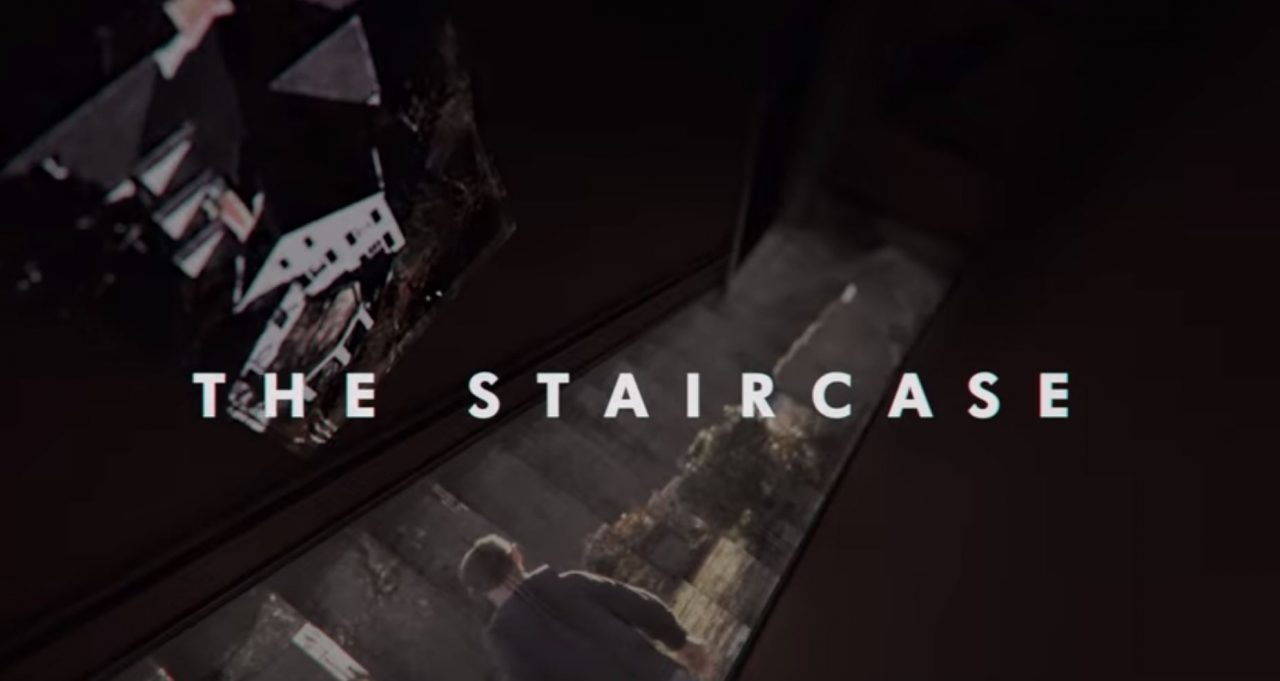TV Review: The Staircase on Netflix


True crime documentaries are a mixed bag. Some, like Making a Murderer, are journalistically compelling but often dry. A handful, like The Jinx, manage to mix quality reporting with non-cheesy reenactments, plus the twists and turns, not to mention great photography, of the best cinematic storytelling. Many others, however, follow the lurid-and-exploitative footsteps of The Case of: JonBenet Ramsey, inspiring little more than shocked gasps and a sick fascination with the victim. The Staircase, now playing on Netflix, is an unusual hybrid true crime doc, combining haunting imagery with a detailed look at the stranger-than-fiction facts in the murder case against novelist Michael Peterson, and the justice system that seemingly conspired against him.
Directed by Oscar winner Jean-Xavier de Lestrade, The Staircase was created as an eight-episode 2004 miniseries for French TV. As interest in Peterson’s case—he was accused of beating his second wife, Kathleen, to death in the stairwell of their North Carolina home—was revived in the mid-2000s, the director updated his series with a pair of bonus episodes. For Netflix, de Lestrade added three new episodes, mostly examining the aftermath of the case.
What sets The Staircase apart is that the crime itself is almost beside the point. Instead, de Lestrade turns a magnifying glass on an even bigger mystery: the machinations of the American legal system, and how any detail, large or small, can be twisted to support the prosecution’s theories when they clearly, desperately want someone to blame.
Some of their arguments simply seem ill-thought-out, such as a pearl-clutching, overtly homophobic examination of Peterson’s bisexuality; assistant district attorney Freda Black equates Peterson’s preferences with moral depravity, and describes a planned sexual meeting with another man as “filth, pure filth.” Others are downright cockamamie: even before blood-spatter analyst Duane Deaver is unmasked, eight years after Peterson’s conviction, as a fraud with no scientific credentials who fabricated evidence in dozens of cases, his courtroom explanations are stretched thinner than melted taffy.
Likewise, medical examiner Deborah Radisch (who may have something of a checkered record of her own) insists in sworn testimony that Peterson, in a rage, was somehow able to beat his wife over the head gently enough to cause the lacerations that caused her to bleed to death, but not damage her skull. There’s plenty more where this came from, as corruption within law enforcement—and the complicity of the state’s attorney’s office, especially under pressure from a mouthy outside influence or two—is exposed.
On the other side of the aisle, Peterson and his lead attorney, David Rudolf, give access to many hours’ worth of their strategy meetings, where they pore over every strained theory and bizarre (or not?) coincidence, such as the death, eighteen years earlier, of a family friend who was also found—wait for it—at the bottom of a staircase.
Peterson and Rudolf spend an uncomfortable amount of time making glib comments about the defendant’s legal circumstances, which leaves a bad taste in the mouth of the viewer. So do the frequent jokes about Rudolf’s fees, which lead Peterson to question, rightly so (and perhaps a subject ripe for other documentaries), how the less affluent fare when accused of crimes they may—or may not—have committed.
The twisted course of Peterson’s trial is, to put it mildly, a series of gut punches. From the slyly manipulative tactics of the defense to the showboating of the prosecution and the real, palpable grief of family members on both sides, the courtroom happenings—documented much more extensively here than in other crime documentaries—are hard to believe at best, and hard to stomach at worst. They bring into question a host of legal issues, not the least of which is a human being’s ability to separate aspects of a person’s character she doesn’t like from the crime at hand, and assess reasonable doubt. The post-trial proceedings—including a candid, tear-inducing conversation with Judge Orlando Hudson in the final episode—are even more difficult to watch.
Did Michael Peterson kill his wife? After watching all thirteen episodes of The Staircase, I still have no clue. But I do know that there was enough bumbling, bungling, and outright dishonesty in law enforcement’s investigation of the case to cast a towering shadow of doubt over the proceedings. This makes The Staircase the rare examination of a legal case where no one wins; indeed, as Peterson quotes from Shakespeare at the end, “All are punished.”